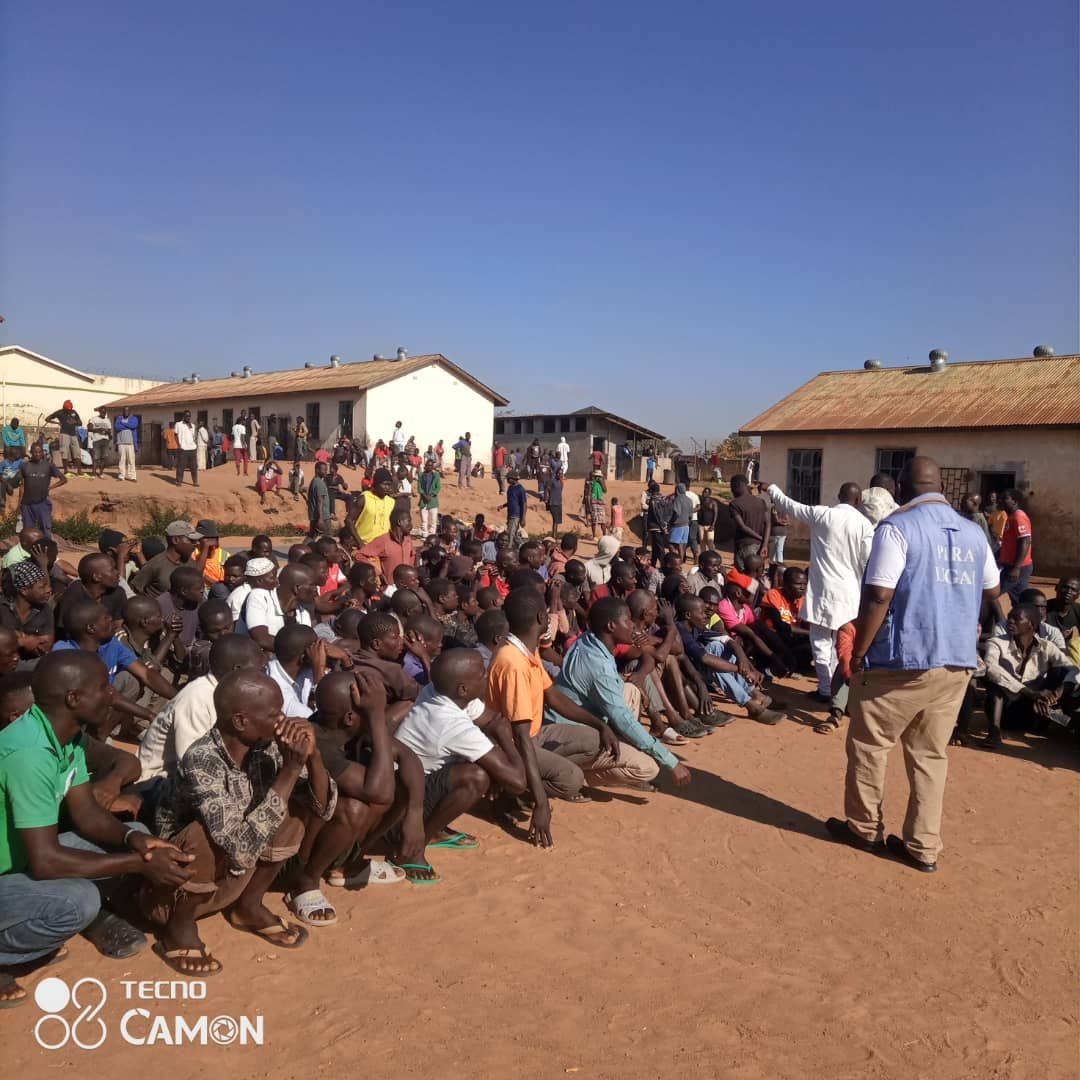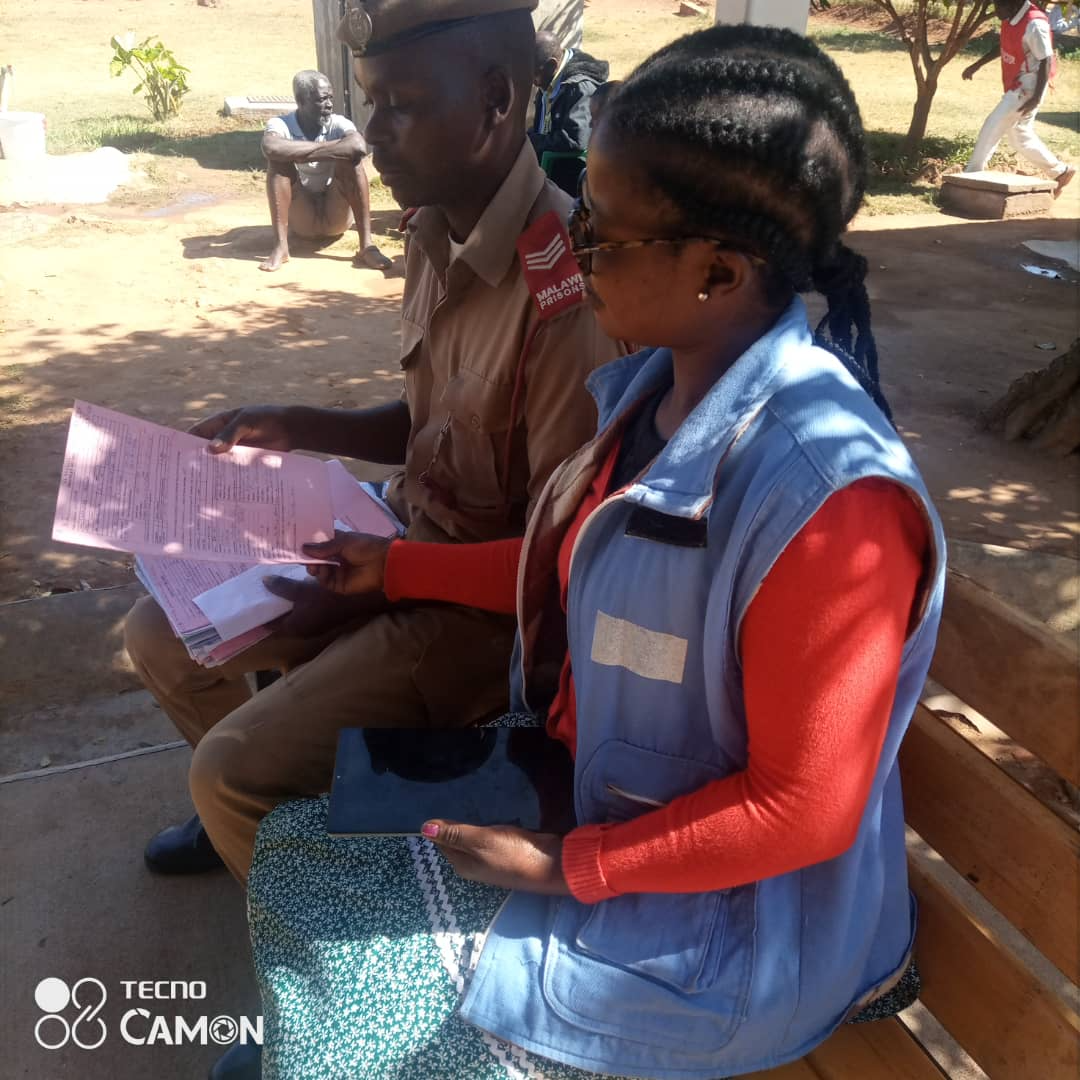Findings from Auditing Prisons in Malawi (Part 1): A Data-Driven Approach to SDG16.3.2

by Eric Cadora, Director, Justice Mapping (USA), Clifford Msiska, Director, Paralegal Advisory Service Institute (Malawi), and Adam Stapleton, Director, The Governance and Justice Group (UK)
The Justice for All report highlights the importance of putting people at the center of justice. This can be achieved by understanding their justice needs, preventing and resolving their justice problems, empowering them, and improving their justice journeys.
This initial installment of a two-part blog in our Justice for All series, written by Justice Mapping, the Paralegal Advisory Service Institute (PASI), and the Governance and Justice Group (GJG), summarizes the findings of a recent Prison Audit in Malawi prisons. The blog emphasizes the importance of open data to inform policies and achieve progress on SDG16.3.2.
Prison overcrowding is a common problem in countries around the globe. It is exacerbated in Africa, where data — from the latest World Prison Brief — indicates that prison systems in almost 80% of countries on the continent are operating beyond their capacity. The latest SDG 16 Data Initiative Report 2022 states unequivocally: “Globally, there has not been any notable progress on indicator 16.3.2.”
Such a blunt assessment is best met with direct engagement. The GJG and Justice Mapping have been conducting ‘Justice Audits’ around the world for the past decade. Justice Audits facilitate a nation’s resources to mobilize its own data in service of both immediate ameliorative action and preventive practices for the longer term.
An offshoot of the Justice Audit, the Prison Audit, examines the general population in a prison and identifies those eligible for release under the existing laws of that country. It provides a roadmap for reducing both unsentenced (pre-trial) detainees (in line with SDG16.3.2) and sentenced populations and applies findings to inform bail and sentencing guidelines to the apex court, as well as policy notes for legislators.
In line with the Justice Auditing methodology, Prison Audits collect, triangulate and visualize data to assist those concerned with narrowing the justice gap, increasing awareness of unmet needs, providing open access to data as a platform for partnerships and accountability, and informing policies and programs with evidence of what works — as advanced in the Justice for All report of the Task Force on Justice.
A series of Prison Audits are planned for ten countries in Africa where prison overcrowding is most acute, led by PASI in association with the GJG and Justice Mapping.
In Malawi, PASI launched Prison Audits in Maula prison and Kachere Women’s prison in the nation’s capital city, Lilongwe. Prison officers and paralegals interviewed 2,409 prisoners — with their consent — in June-July this year (reaching 90% of the male and 100% of the women prison populations). Each prisoner’s responses were cross-checked by the prison officers against the prison file. The Audit found:
66% of unsentenced prisoners, totaling 897 men and women, were eligible for release under the laws of Malawi:
- Almost half (49%) were found to have ‘overstayed’ (i.e., exceeded the custody time limit by when they should have been brought to trial);
- 16% had been granted bail by the courts (146 people) but were unable to pay the cash surety imposed as part of the bail conditions (i.e., penalized for being poor);
- 1% were charged with minor offenses and legally entitled to bail as of right.
In addition, 9% of pre-trial detainees expressed their intention to enter a guilty plea. This is a low-hanging fruit for purposes of SDG 16.3.2. as they can be listed and sentenced and transferred from the awaiting trial to the sentenced section. The lists of the identified prisoners were submitted to the Chief Justice.

Prison officer checks responses against the file during the prison audit. Photos provided by PSAI.
Prison Audits encompass sentenced prisoners and foreign nationals held on immigration grounds and pre-trial detainees. Further insights from the Malawi Audit include:
- Poverty is the critical determinant of whether a person is held in prison: 48% of prisoners reported earning a monthly income of USD 50 or less before their arrest (with only 4% earning over USD 500 per month), and 80% of women and 90% of men cited financial hardship as the reason they couldn’t afford legal representation.
- ‘Equality of arms’ underpins the adversarial system but does not work in practice: 100% of sentenced young men (under 21) were devoid of legal representation at trial. 66% of adult men in pre-trial detention and charged with homicide claimed they were unrepresented. 16 out of 18 women in pre-trial detention facing homicide charges claimed not to be represented. These claims are not challenged as Malawi has less than 700 practicing lawyers to service a population exceeding 20 million.
- The use of prisons as a primary measure, rather than a last resort, is evident: Most remand detainees have established places of residence, suggesting that bail with residential conditions, rather than cash surety, could be more judiciously employed (of the 897 interviewed, only four had returned to prison for breaching bail conditions). 50% of adult men were incarcerated for non-violent offenses, as were 62% of female and 62% of male offenders under 21. To address this, PASI directs a national Village Mediation Programme, providing an alternative avenue for diverting these offenders.
- The majority of arrested individuals are held too long in police stations without legal aid: Most were kept in police holding cells over the 48 hours permitted; very few gained access to legal aid while at the station. Virtually all detainees were formally interviewed, yet scarcely any had the benefit of a legal representative or advisor during their interview, as recommended by the UN Principles and Guidelines on Access to Legal Aid in Criminal Justice Systems (2012) — see Guideline 3 at paragraph 43, b.
Based on these findings, recommendations directed to the Inspector-General of Police included a Directive instructing the police:
- Not to exceed a 48-hour detention period without presenting individuals before a court, and to ensure detainees have access to — and not to interview them in the absence of — an accredited legal aid provider.
And recommendations to the Supreme Court on Bail Guidelines:
- Bail should not be denied based on the financial circumstances of the accused and should be reviewed when a remand detainee has exceeded statutory time limits.
The Chief Justice instructed the Chief Magistrate for the region to review the lists of prisoners eligible for release, and the Commissioner General of Prisons sought PASI’s assistance in conducting Prison Audits in three more central prisons. The data from these audits will subsequently be presented to the National Criminal Justice Coordination Committee, chaired by the Chief Justice and including the Inspector-General of Police and Director of Public Prosecutions.
A second blog will describe how the judiciary reviewed the lists in the prisons and the outcomes.
About the Authors
Clifford Msiska is a Malawian national, lawyer and has been national director of the Paralegal Advisory Service Institute (PASI) since 2007. Previously he was first national and then Africa regional coordinator for Penal Reform International (PRI) responsible for fostering paralegal services as a legal aid service provider on the front-line of the criminal justice system (2000–2007). He has introduced paralegals in countries across Africa: in both civil law jurisdictions (such as Benin and Niger), as well as common law (Kenya, Sierra Leone, Sudan and Uganda) and in South Asia (Bangladesh). He was appointed Commissioner of the Malawi Special Law Commission on several key pieces of legislation including Legal Aid and Prisons. He holds a Masters in Law from Kyiv University. He is currently Chairperson, African Centre of Excellence — Access to Justice.
Eric Cadora is an American national and founder of Justice Mapping, a data visualization and geographical information systems consultancy based in the USA. He has worked toward criminal justice reform for 30 years, serving as a justice strategist and information technology consultant to government (both domestically and internationally), research institutes, and social purpose advocacy groups in pursuit of data-driven solutions to criminal and social justice challenges. He conceived and launched the “Justice Reinvestment” initiative, which became a multi-million-dollar Federal grant program of the U.S. Bureau of Justice Assistance. Before that, Cadora originated the “Million-Dollar Blocks” critique of prison spending.
Adam Stapleton is a Director of the Governance and Justice Group (UK). Formerly a practicing criminal barrister in London, he has served as a human rights officer with UN missions in Cambodia and Rwanda and regional adviser to Penal Reform International from a base in Malawi. He was a Fellow of the Human Rights Centre at Essex University (UK), Visiting Professor of Law at Northwestern University (USA) and is a senior Justice adviser to the UK government’s Office of Conflict, Stabilisation and Mediation (OCSM). He has consulted for a number of governments and development agencies in the design and evaluation of criminal justice programs in over 25 African countries, in the Balkans and South Asia; as well as in highly fragile and post-conflict countries.
Related Resources
